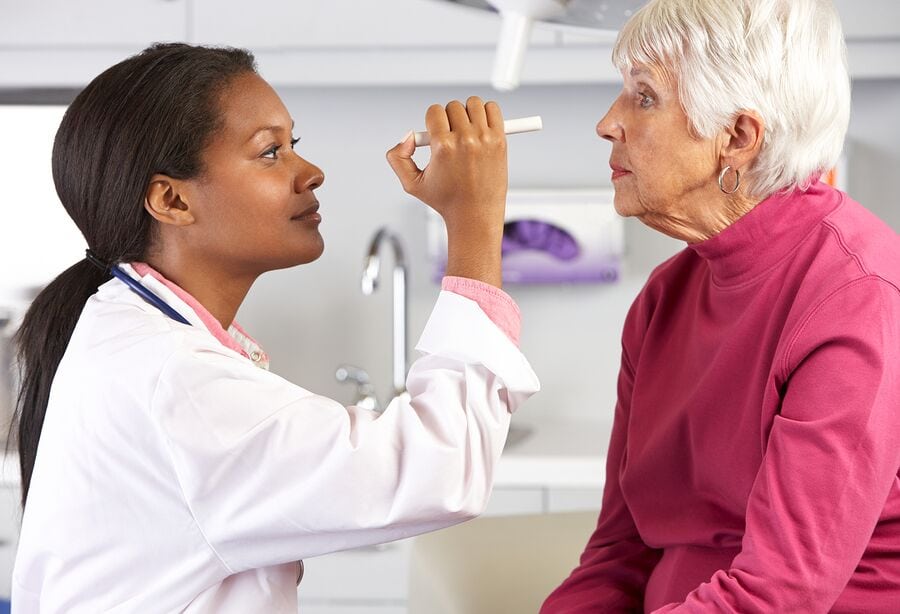What is Dry Macular Degeneration?
As people age, they sometimes experience vision problems. They may even have permanently impaired vision or go entirely blind. Vision problems may be caused by a number of different conditions. One such condition is called dry macular degeneration, which commonly affects people over the age of 65. If you’re unfamiliar with the disease, knowing more about it may help you to recognize it in your aging relative so they can get the medical attention they need.

Elderly Care in Provo UT: Dry Macular Degeneration
Dry Macular Degeneration Basics
Dry macular degeneration is one of two types of age-related macular degeneration (AMD). The other is wet macular degeneration. Dry AMD is more common than wet AMD, accounting for up to 90 percent of AMD diagnoses.
Dry AMD causes the part of the retina, called the macula, to deteriorate and thin. Damage to the retina is caused by waste products that form yellowish deposits called drusen to develop under the retina. The drusen can get bigger, making cells in the retina die and causing vision to get worse.
Causes of the Condition
Doctors don’t know what causes dry AMD. Scientists believe that it could be a combination of environment and hereditary factors. Some risk factors that may affect the chances of a senior developing dry AMD are:
- Age: People are usually diagnosed after the age of 65.
- Family History: If the older adult has a family member with AMD, they are more likely to get it.
- Race: Caucasians get AMD more often than other races.
- Smoking: Either smoking or being exposed to second-hand smoke increases the risk.
- Cardiovascular Disease: People with diseases that affect blood vessels can put older adults at an increased risk for AMD.
Symptoms of Dry Macular Degeneration
The symptoms of dry AMD usually develop slowly over time. They may include:
- Distorted vision that makes lines that are straight appear to be bent.
- Poor central vision that occurs in one or both eyes.
- Requiring brighter lighting for close up tasks, like reading.
- Trouble adjusting to changes in lighting from bright to dim.
- Colors appearing less bright.
- Problems recognizing faces.
If your aging relative is diagnosed with dry AMD, elderly care can help them to cope with the condition. Vision loss may make it unsafe for them to drive, which could leave them housebound. Having an elderly care provider to drive them can allow them to continue leading an active lifestyle. Elderly care providers can also help them with tasks that involve reading, such as paying bills or reading recipes. Elderly care providers can even read books, magazines, and newspapers to your aging relative.
Are you or a loved one considering Elderly Care in Provo, UT? Please talk to the friendly staff at December Rose Senior Care at Home. Providing Home Care in Highland, Utah and Surrounding Communities. 801-427-ROSE (7673)
Sources
Mayoclinic.org
Macular.org
Preventblindness.org
- What to Do After Your Loved One Has Been Diagnosed with Dementia - February 21, 2020
- Risk Factors for Alzheimer’s Disease - February 5, 2020
- The Main Reasons Why Family Caregivers Don’t Get Enough Sleep - January 22, 2020

